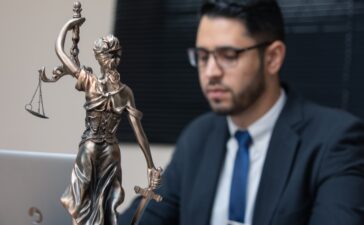Both partners can benefit from a collaborative divorce but the success of the whole thing depends on the quality of divorce and family lawyers they choose for the case. There is no conflict or opposition in a collaborative divorce. In this process, neutral financial experts, the lawyers, and a mental health worker try to get information from both parties of the case and generate good options the couple can select from. In these options, they can find good solutions for child-related needs, finances and property.
For a collaborative divorce, a chain of confidential and private meetings is arranged and this results in the negotiation and signing of marital settlement accords. Nonetheless, family lawyers require experience and special training in the process of collaborative divorce. This helps them utilize collaboration instead of the conventional adversarial litigation technique. In this negotiation style, the needs of both parties are inspected and the best options generated. The couple can then choose the best option for their needs from what is on the table. This includes what is best for them and their children in the future.
Therefore, domestic attorneys must be trained and experienced in this method of resolution or there is a tendency to fall back on the traditional method of handling divorce cases. The argumentative, posturing and adversarial behavior and attitude that always wants to get to court cannot come up in collaborative divorce settlements. How then does someone find the right lawyer to successfully guide them through the process of collaborative divorce?
The right questions to ask
This is a list of questions you should ask a family legal representative during an interview. They will help you determine which lawyer is the best for you in a collaborative divorce case.
- Do you specialize in family divorce and how long have you handled family, divorce and matrimonial law cases?
- Have you received any collaborative divorce training?
- How many years have you worked collaborative law cases and how many cases have you handled in this time?
- When last did you have collaborative divorce training and what did you learn?
- How many hours of advanced and intermediate raining have you received for the collaborative divorce process?
- Are you a member of any local group for collaborative divorce? Which one?
- Have you worked with my partner’s attorney in the past? If so, what was the experience?
- Do you have collaborative divorce books in your office?
- Have you published papers, blogs, videos or books about collaborative divorce?
- From your point of view, what are the reasons some divorce cases don’t settle through the collaborative process?
These questions will help anyone find a well-educated, well-trained and experienced familial legal practitioner to represent in a collaborative divorce case. Keep in mind that using a family and divorce lawyer who isn’t trained, experienced and educated in collaborative divorce process will most likely lead to a failed case and undermine all chances of getting a healthy and therapeutic divorce.
If you need assistance in understanding what the collaborative divorce process is, get in contact with the family lawyers office for more information.









